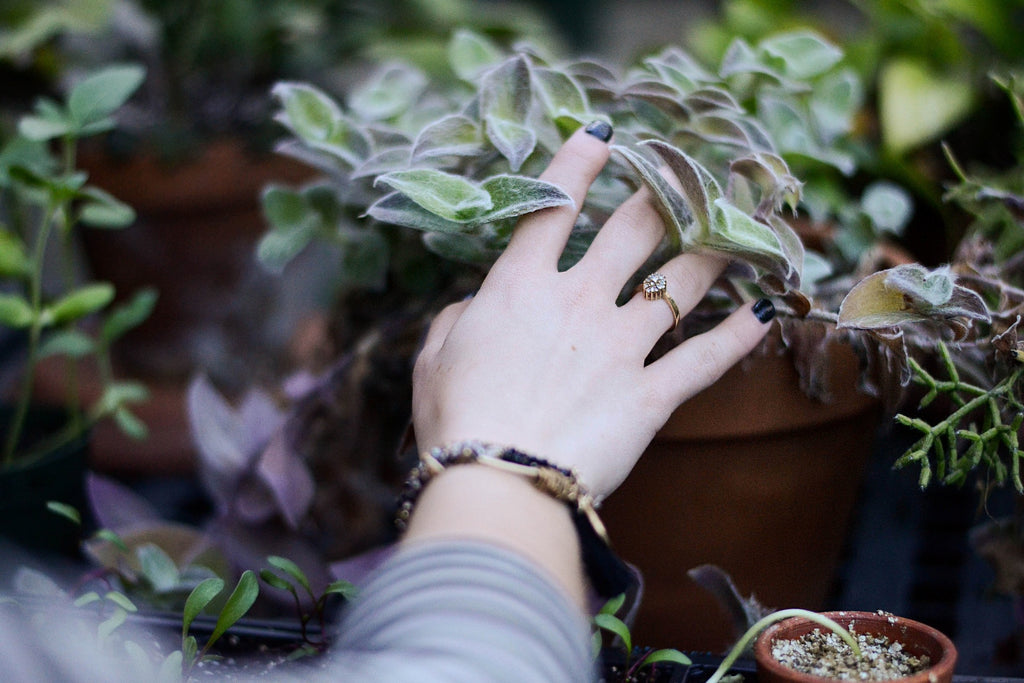Hortophilia has been described as this special desire to interact with, manage, and tend nature. This feeling is profoundly instilled in us. In this manner, contact with gardens, horticulture and gardening therapy, walking in presence of nature views or green exercising, have all shown considerable improvements on many aspects of our health. Therefore, not only plants make our spaces much better looking, they makes us healthier in many ways.
Plants have been an integral part of human life for thousands of years. They provide us with food, medicine, and other essential resources. However, beyond their practical uses, there is mounting evidence that interacting with plants can also have significant health benefits. In this text, we will explore how interacting with plants makes us healthier.

Benefits of interacting with plants
To begin with, growing evidence shows that both active and passive contact with gardens provides psychological, emotional, and social benefits. Cooper-Marcus and Barnes in their work on Healing Gardens,that benefits of gardens include recovery from stress, having a place to escape to, and improved moods. In addition, horticulture therapy has also shown benefits, especially in clinical settings and nursing homes. Other studies provide evidence that dementia and stroke patients show improved mobility and dexterity, more confidence, and improved social skills as a result of gardening activities. According to Ulrich, gardens will be more likely to be calming and to ameliorate stress if they contain rich foliage, flowers, a water feature, congruent nature sounds (bird songs, moving water), and visible wildlife, particularly birds.
Other researchers also have found improvements in emotional functioning and reductions in stress. For instance, a laboratory study by Prof. Pretty of “green exercise” tested the effects of projected scenes on physiological and psychological outcomes of subjects on a treadmill. They found that all subjects benefited similarly in physiological outcomes, but that subjects who viewed pleasant nature scenes (both rural and urban) scored higher in measures of self-esteem than those viewing totally urban scenes or “unpleasant” rural scenes with destroyed landscapes. Similar results have been found in field studies by Dr. Hartig and its colleagues who looked at the stress reducing effects of walking in an urban environment with nature as compared to a similar walk without natural elements.
Reduce stress levels
Firstly, being around plants has been shown to reduce stress levels. Studies have found that spending time in a natural environment, such as a park or garden, can help reduce cortisol levels, the hormone associated with stress. This is particularly true for indoor plants, which have been shown to have a calming effect on the mind and body. In fact, research has found that simply looking at a plant can help lower blood pressure and reduce feelings of anxiety and fatigue.
Boost our mood
Moreover, interacting with plants can also boost our mood and improve our mental health. Studies have shown that being around plants can increase feelings of happiness, positivity, and overall well-being. This is partly due to the fact that plants release chemicals called phytoncides, which have been shown to improve our mood and reduce stress levels. Additionally, caring for plants, such as watering, pruning, and repotting, can provide a sense of purpose and accomplishment, which can boost our self-esteem and confidence.
Air quality
In addition to their psychological benefits, plants can also have a positive impact on our physical health. For example, indoor plants can help improve air quality by absorbing harmful pollutants and releasing oxygen. This is particularly important in urban areas, where air pollution can be a major health hazard. In fact, research has found that indoor plants can reduce the incidence of respiratory problems, such as asthma and allergies, by up to 50%.
Mental performance
Furthermore, interacting with plants can also improve our cognitive function and productivity. Studies have found that having plants in the workplace can boost productivity by up to 15%. This is partly due to the fact that plants help reduce stress levels, which can improve concentration and focus. Additionally, plants can help regulate humidity levels, which can have a positive impact on our cognitive function and decision-making abilities.
Social abilities
Lastly, interacting with plants can also improve our social connections and sense of community. Gardening, for example, can bring people together and create a sense of shared purpose and collaboration. Moreover, community gardens have been shown to improve social cohesion, reduce crime rates, and improve the overall well-being of the community.
Looking at the bigger picture, by cultivating plants we continue to cultivate our knowledge of the natural world and we embrace urban nature as a design option that promotes urban sustainability for today's world.
In conclusion, interacting with plants has a range of health benefits, both physical and psychological. From reducing stress levels to improving air quality and productivity, plants can have a positive impact on our overall well-being. Therefore, incorporating plants into our daily lives, whether it be through indoor plants, gardening, or spending time in nature, can help us live happier and healthier lives.
Find beautiful ways to interact with plants with our natural decor selection of preserved plants, flowers, vases and planters.
References
Restorative Commons https://www.nrs.fs.fed.us/pubs/gtr/gtr_nrs-p-39r.pdf
Preference for Nature in Urbanized Societies: Stress, Restoration, and the Pursuit of Sustainability http://agnesvandenberg.nl/jsi.pdf










































Leave a comment